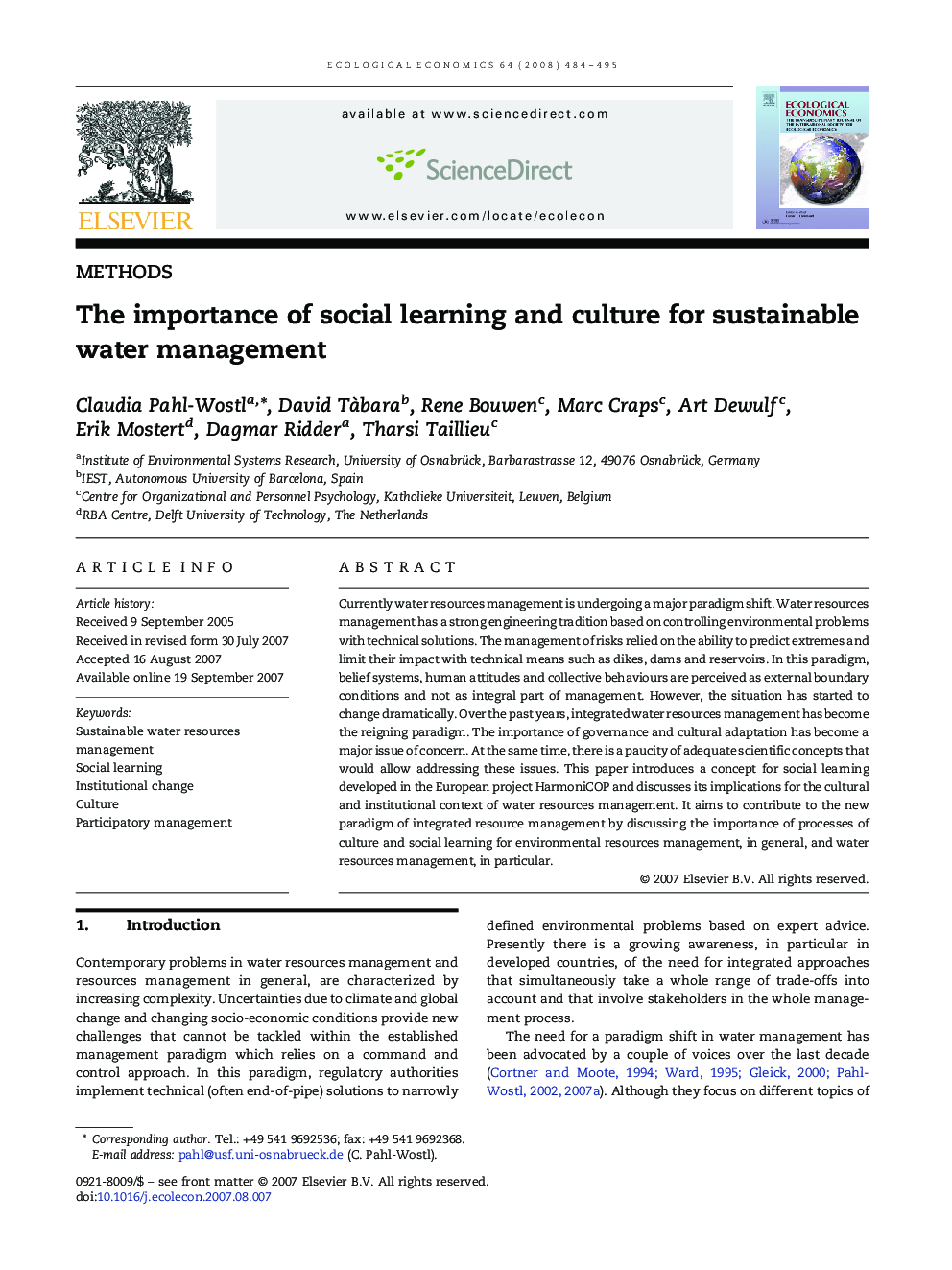| Article ID | Journal | Published Year | Pages | File Type |
|---|---|---|---|---|
| 5052079 | Ecological Economics | 2008 | 12 Pages |
Currently water resources management is undergoing a major paradigm shift. Water resources management has a strong engineering tradition based on controlling environmental problems with technical solutions. The management of risks relied on the ability to predict extremes and limit their impact with technical means such as dikes, dams and reservoirs. In this paradigm, belief systems, human attitudes and collective behaviours are perceived as external boundary conditions and not as integral part of management. However, the situation has started to change dramatically. Over the past years, integrated water resources management has become the reigning paradigm. The importance of governance and cultural adaptation has become a major issue of concern. At the same time, there is a paucity of adequate scientific concepts that would allow addressing these issues. This paper introduces a concept for social learning developed in the European project HarmoniCOP and discusses its implications for the cultural and institutional context of water resources management. It aims to contribute to the new paradigm of integrated resource management by discussing the importance of processes of culture and social learning for environmental resources management, in general, and water resources management, in particular.
